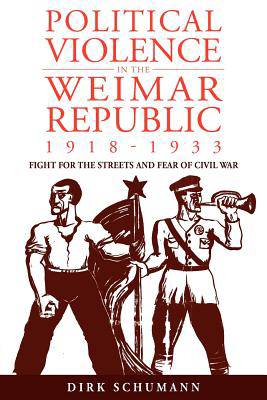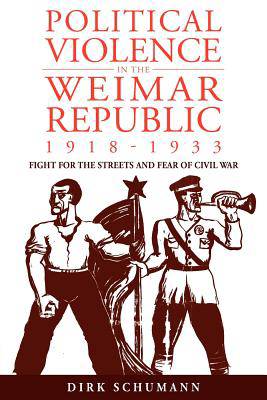
- Afhalen na 1 uur in een winkel met voorraad
- Gratis thuislevering in België vanaf € 30
- Ruim aanbod met 7 miljoen producten
- Afhalen na 1 uur in een winkel met voorraad
- Gratis thuislevering in België vanaf € 30
- Ruim aanbod met 7 miljoen producten
Political Violence in the Weimar Republic, 1918-1933
Fight for the Streets and Fear of Civil War
Dirk SchumannOmschrijving
A comprehensive analysis of political violence in Weimar Germany with particular emphasis on the political culture from which it emerged.
"Today's readers, living in what Charles Maier calls 'a new epoch of vanished reassurance', will find this book absorbing and troubling."-The Historian
The Prussian province of Saxony-where the Communist uprising of March 1921 took place and two Combat Leagues (Wehrverbände) were founded (the right-wing Stahlhelm and the Social Democratic Reichsbanner)-is widely recognized as a politically important region in this period of German history. Using a case study of this socially diverse province, this book refutes both the claim that the Bolshevik revolution was the prime cause of violence and the argument that the First World War's all-encompassing "brutalization" doomed post-1918 German political life from the very beginning. The study thus contributes to a view of the Weimar Republic as a state in severe crisis but with alternatives to the Nazi takeover.
From the introduction:
After the phase of civil war, political violence assumed a distinctly limited form. It was no longer aimed at killing or wounding as many opponents as possible; instead, it served political parties and organizations as an instrument for exerting pressure in the struggle over control of the street. This development was driven by the Combat Leagues (Wehrverbände) of all political camps, who, with their uniforms and marches, injected militaristic elements into the political culture. However, since the violence they perpetrated followed a political and not a military logic, it was, as I will show, in principle controllable and did not pose a fundamental threat to the political order, not even in 1932, that particularly turbulent year before Hitler's assumption of power.
Specificaties
Betrokkenen
- Auteur(s):
- Uitgeverij:
Inhoud
- Aantal bladzijden:
- 398
- Taal:
- Engels
- Reeks:
- Reeksnummer:
- nr. 10
Eigenschappen
- Productcode (EAN):
- 9780857453143
- Verschijningsdatum:
- 1/04/2012
- Uitvoering:
- Paperback
- Formaat:
- Trade paperback (VS)
- Afmetingen:
- 152 mm x 229 mm
- Gewicht:
- 530 g

Alleen bij Standaard Boekhandel
Beoordelingen
We publiceren alleen reviews die voldoen aan de voorwaarden voor reviews. Bekijk onze voorwaarden voor reviews.











